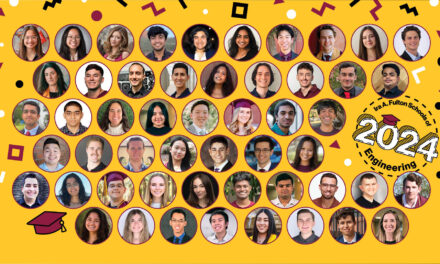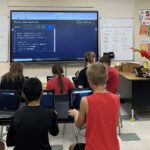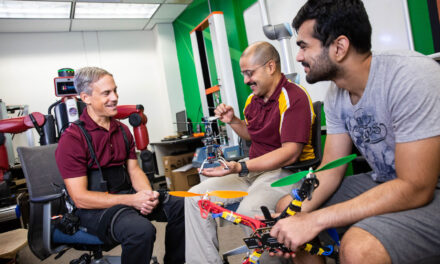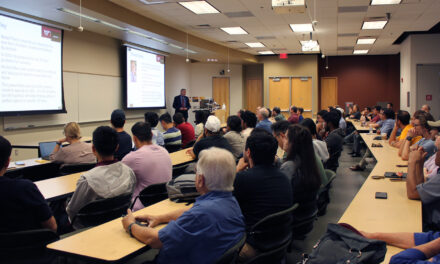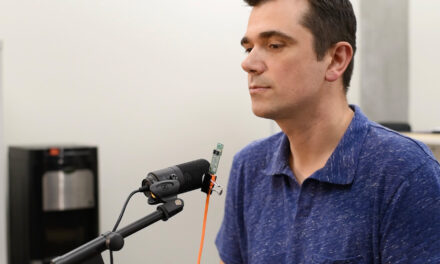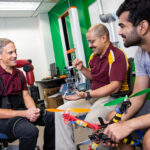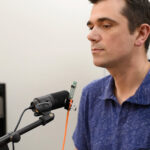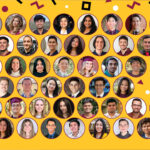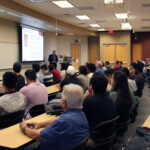
Engineering background launches ASU grad to early career success
Problem-solving skills lead Fulton Schools alumna to be named among Phoenix’s most influential young leaders
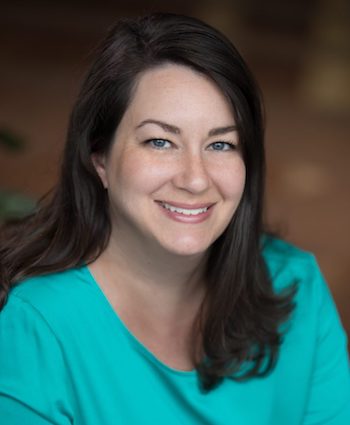
Heather Boysel
Heather Boysel says the foundation on which she has built a rewarding career in law began forming during an introductory engineering course at Arizona State University.
“Even in that intro class, they taught you how to start thinking about things differently,” Boysel says. “With the analytical skills you start to develop in that first year, you learn how to figure out ways to solve problems. Those abilities translate into what you need to succeed in a lot of different fields.”
An even earlier glimpse of the engineering mindset came during her senior year in high school when Boysel (she was Heather Levene then) visited ASU’s Tempe campus to get a look at the biomedical engineering program.
“I was impressed with the projects students were getting opportunities to work on,” she says. “Some of it was just amazing cutting-edge stuff.”
Boysel’s father was a physician and she went to college with the idea that she would likely “go into the family business” and pursue medical school after undergraduate studies.
“I also thought that if I did change my mind, then bioengineering would be a good backup plan,” says Boysel, who was also a student in ASU’s Barrett, The Honors College.
Despite the large numbers of students at ASU and in the Ira A. Fulton Schools of Engineering — called the College of Engineering and Applied Sciences at the time she arrived — Boysel found the biomedical engineering program provided an intimate educational experience.
The program had fewer students than other areas of engineering and a larger percentage of women enrolled in the program.
“So it was more of a close-knit group,” Boysel recalls. “You moved from class to class with many of the same students. We would study together. It was a collegial environment. We were more cooperative than competitive.”
By her junior year, Boysel had become interested in aspects of the subject matter beyond science and engineering. She found the world of biomedical engineering research, medical advances and health care presented more than just technical challenges.
She became intrigued by economics, public policy, patent protection and the related legal, regulatory and financial dimensions that are essential to providing accessible, quality health care.
So, Boysel’s plan changed. Instead of attending medical school after earning her biomedical engineering degree in 2004, she began studies in ASU’s Sandra Day O’Connor College of Law.
Engineering solutions for health care
Fast-forward to 2019, Boysel is in her 12th year at Gammage & Burnham, one of Arizona’s most prominent law firms, where she was recently named managing partner. In the law business, that’s sort of like being a company’s CEO.
That achievement and her work in a commercial litigation law practice — with a focus on health-care-related legal issues — also led to her being included on the Phoenix Business Journal’s 2019 40 under 40 list.
The accolade honors 40 young professionals under age 40 who are making positive impacts in the Phoenix metro area through their jobs as well as their contributions to community-building endeavors.
Boysel joined three other former Fulton Schools students on this year’s list.
In her law practice, Boysel primarily represents hospitals and other health care providers in disputes related to health care reimbursement and with various regulatory compliance challenges.
“It’s difficult to be a health care provider in today’s world,” she says There are a lot of regulations and reimbursement challenges. So it’s rewarding to be able to guide them and help them be successful.”
She has also worked with families seeking help from state-funded agencies to get needed medical and social services.
“It’s something that fills your heart when you are able you get a family services that are going to benefit one of their children for the rest of that child’s life,” Boysel says.
“I feel like I’m on the right side of things. I’ve always felt I’m fighting for the good guys,” she says. Just as she would have been doing in an engineering career, Boysel adds, her goal is ultimately to “help people solve their problems and improve their lives.”
Boysel pursues a similar purpose as a member of the board of directors for Adelante Healthcare, which operates multiple community health centers throughout Arizona that strive to “help serve our most vulnerable populations.”
Campus community activities she was involved in at ASU helped to prepare her for such a role.
Setting the foundation for success
Boysel was treasurer of the university’s chapter of Tau Beta Pi, the national collegiate honor society for engineering students, and also took on planning and organizing tasks for some of the group’s social events.
She served as a senator in ASU’s student government, which included working on a committee that made decisions on allocating funds for various student activities.
“Students had to make the case to us about how they were going to use the money in worthwhile ways,” Boysel says. “I remember that engineering students were always well prepared. They did the most highly detailed presentations.”
She was also an active member of Alpha Delta Pi, a sorority that promotes leadership and social responsibility. She served as director of finance and then as director of standards and ethics.
All of those experiences “were good training for a law career,” Boysel says.
She has maintained connections to ASU through job duties such as serving as co-chair of Gammage & Burnham’s recruiting committee — a position that gives her “an excellent excuse to go back to ASU a couple times a year to do on-campus interviews with law students,” she says — and also through continuing friendships with fellow alumni.
Two of those longtime friends are not at all surprised by Boysel’s upwardly mobile career trajectory or her community involvement.
Fellow biomedical engineering graduate Leah Braddell, whose own career achievements have moved her into a management position in the medical device industry, says she was fortunate to have Boysel as a super-capable and dependable collaborator on engineering class projects.
“She was so motivated to get an A on everything. She always gave 100 percent,” Braddell says. “I never had to worry that she wasn’t going to do her part or would do things at the last minute. There was no procrastination with Heather.”
Jennifer Eggert, a 2004 supply chain management graduate and now a vice president with a commercial real estate investment company, remembers Boysel taking on important student leadership duties even when she had demanding course loads.
Eggert points, for instance, to Boysel’s role as the sorority’s standards and ethics director.
That position “is not a fun job,” Eggert says, because it involves holding hearings for those who break sorority rules or violate the code of conduct.
“Heather was always firm but fair when handling these situations, foundations that she has carried over into her career,” she says.
Eggert has also seen Boysel’s competitive spirit displayed vigorously while playing board games.
“I have never had to go up against her in a courtroom,” she says. “But I’m sure those same qualities are what have contributed to the success of her law career at such a young age.”
Charting the course for others
Away from her job, Boysel and her husband, Jason, are raising two daughters, Violet, 7, and Lily, 5. Surprisingly enough, her engineering training comes into play in her home life — especially when it comes to family vacations. Recent vacation destinations have included Ireland and the Netherlands.
“Traveling is my passion,” she says, and she goes into “full travel-planning mode” for every extended excursion.
“I take a very engineering approach to it,” Boysel explains. “I have very detailed strategies.”
Her most intense planning projects have been for frequent trips to Disneyland with the kids. She maximizes the experience by designing schematics to minimize wait times in lines for various attractions, thus enabling the family to get to all the popular rides as efficiently as possible.
“My husband thinks I’m crazy,” Boysel says. “But he always says something about how smoothly our trips go.”
In addition to guiding her children into their futures, Boysel’s goals as the law firm’s youngest managing partner now include helping to ensure the “handing off of the baton to the next generation” of leaders who will have the responsibility for maintaining the strong company legacy of Gammage & Burnham.
In much the same way, Boysel is also helping to build an exemplary legacy of Fulton Schools engineering graduates who go on to have successful, impactful careers.






